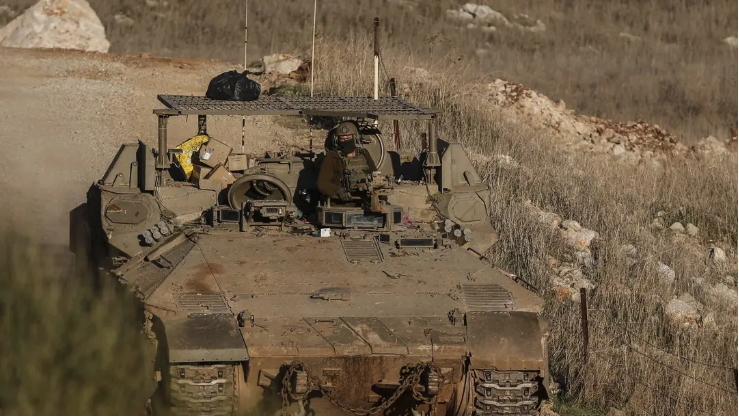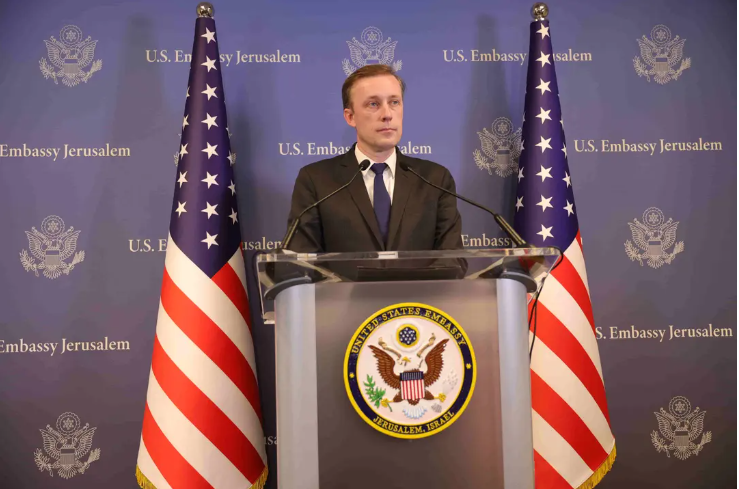Israeli Official: Hostage Deal Could Move Ahead
An unnamed Israeli official told NBC on Wednesday there are 'strong indications' that a proposal regarding the phased release of Israeli hostages and a weeks-long ceasefire in Gaza will soon move ahead. However, the proposal, which is still being worked on, must be approved by the ruling cabinet,...
Facts
- An unnamed Israeli official told NBC on Wednesday there are 'strong indications' that a proposal regarding the phased release of Israeli hostages and a weeks-long ceasefire in Gaza will soon move ahead. However, the proposal, which is still being worked on, must be approved by the ruling cabinet, after which the Israeli public would have 24 hours to contest it before it becomes official policy.1
- As negotiations reportedly progress, US Secretary of State Antony Blinken asked the State Department to review possible US options for the recognition of a Palestinian state once the war in Gaza ends, according to two US officials. US policy, which hasn't changed, has traditionally been to only support the recognition of a Palestinian state as a result of direct negotiations between Israel and the Palestinian Authority.2
- Meanwhile, Israeli Prime Minister Benjamin Netanyahu met with some of the relatives of hostages being held in Gaza, assuring them that the government was working to release their loved ones and stressing the necessity of keeping the details of the negotiations private.3
- Media reports have indicated that the proposal, which doesn't include a firm commitment to a permanent ceasefire, has faced several obstacles, namely over Hamas' presence in Gaza and the withdrawal of Israeli forces from the strip. Anonymous officials familiar with the negotiations said that the proposal lacks details and will take time to implement once finished.4
- Regarding the humanitarian situation in Gaza, the US State Department said on Tuesday that the main UN aid agency in Gaza, the UNRWA, had received over 99% of the money allocated by Congress after Washington announced last week that it would 'temporarily' pause funding to the agency following Israeli allegations that some of its staff have ties to Hamas and took part in the Oct. 7 attacks.5
- Gaza's Hamas-run health ministry reports that the conflict has killed nearly 27K people in the Gaza Strip, the majority of whom were women and children. The war has also created a rapidly deteriorating humanitarian situation. The official Israeli death toll on Oct. 7 stands at around 1.2K people (and there are still over 100 hostages being held in the Gaza Strip).6
Sources: 1NBC, 2Axios, 3Jerusalem Post, 4Washington Post, 5New York Times and 6Huffington Post.
Narratives
- Pro-Palestine narrative, as provided by The Nation. Israel is losing its war in Gaza. After over three months and over 26K dead Palestinians, Israel has failed to release hostages via military operations, to kill Hamas' top leaders, or to create conditions advantageous to ending this long drawn-out conflict. Even then, if Israel did manage to achieve the majority of its war goals, it still would be left without a clear plan of action for the day after the war. Destroying a group like Hamas is a fool's errand, and Netanyahu has dug Israel into a hole that it will have a tough time climbing out of. Israel should accept a comprehensive ceasefire.
- Pro-Israel narrative, as provided by The Daily Beast. Though, of course, this war has not been easy, Israel has made steady progress in Gaza, first neutralizing Gaza City before moving on to other population centers like Khan Younis. Israel has substantially degraded Hamas' military capabilities and leadership and even partially degraded elite Hezbollah units stationed along Israel's northern border. Indeed, as Israel's enemies should recognize, Israel's raw military power should not even be up for debate, and the country will fight and negotiate as it sees fit to achieve its goals.







